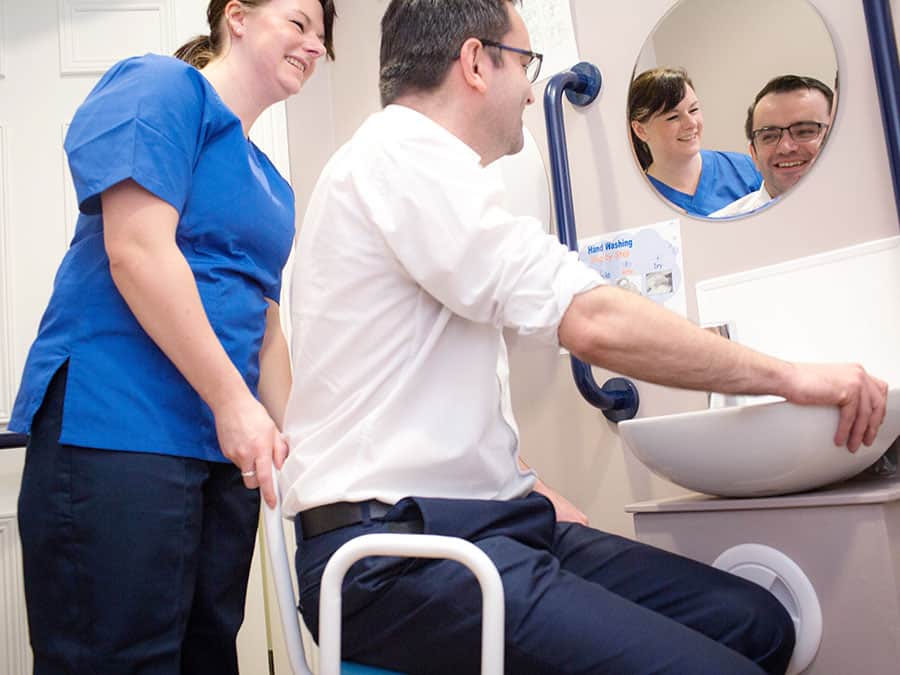RCOT and CSP join partners in lobbying to protect vital rehab services

A number of leading health and social care organisations are calling on the UK Government to protect staff working in rehabilitation services from redeployment as the services in England cope with a second wave of COVID-19.
As the NHS and social care sector begin tackling winter pressures, a joint letter has been written to Jo Churchill MP, Parliamentary Under-Secretary of State for Prevention, Public Health and Primary Care, calling on the Government to ensure that rehabilitation services are supported to restart fully.
Signatories include Julia Scott, Royal College of Occupational Therapists (RCOT) Chief Executive; Karen Middleton CBE, Chief Executive of Chartered Society of Physiotherapy (CSP); Anna Dixon, CEO at the Centre for Ageing Better; Kate Lee, CEO of Alzheimer’s Society; and Ruth Isden, Head of Influencing at Age UK.
RCOT says its members continue to experience a ‘tsunami’ of demand on rehabilitation support services.
The joint letter highlights the importance of rehabilitation in the recovery from COVID-19, as well as being a pillar of essential support for people with long-term illnesses, physical injuries and mental health problems. It also unveils that, according to recent data, 91 percent of people with ‘long COVID’ will require some form of rehabilitation.
Recently, the NHS confirmed that it would be opening a network of more than 40 ‘long COVID’ specialist clinics to help thousands of patients suffering debilitating effects of the virus months after being infected. Due to start opening at the end of November, the clinics will bring together doctors, nurses, therapist and other NHS staff to physical and psychological assessments of those experiencing enduring symptoms of COVID-19.
Furthermore, the letter says that is essential that those who are most vulnerable receive the rehabilitation support they require to avoid the long-term impact on their health and wellbeing. This is especially important as symptoms of post-COVID syndrome have left thousands of people struggling to manage with everyday activities, RCOT underlines.
The letter also outlines that a survey conducted by Alzheimer’s Society revealed 82 percent of people affected by dementia reported deterioration in symptoms as a result of social distancing and isolation.
Additionally, the organisations say that rehabilitation is proven to facilitate hospital discharge, reduce the need for packages of care, prevent hospital admissions, and reduce pressure on primary care.
“We recognise the need for flexibility where COVID-19 means pressures on the acute sector are high,” the letter reads. “However, it must be recognised the rehabilitation is key in the recovery from the virus, as well as for the management of many other short and long-term conditions. Where staff need to be redeployed, this should be to settings where their professional skills can be most appropriately used.”
The letter continues: “Conversely, denying access to rehabilitation has devastating effects upon a person’s long-term physical and mental health, leaving people dependent on care and support or unable to work, and placing significant additional pressures on the most costly parts of the health and care system.”
Now, the co-signatories are calling on the UK Government to introduce a national rehabilitation strategy that ensures people and places that provide it are reopened with the staff and space to offer these services safely.

